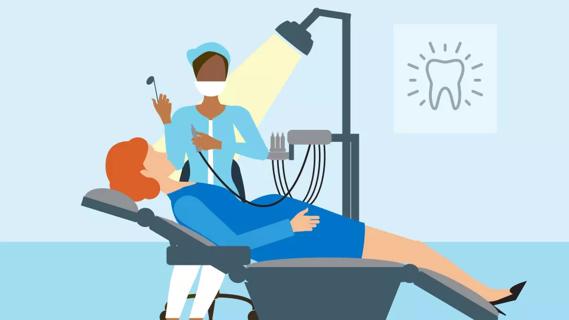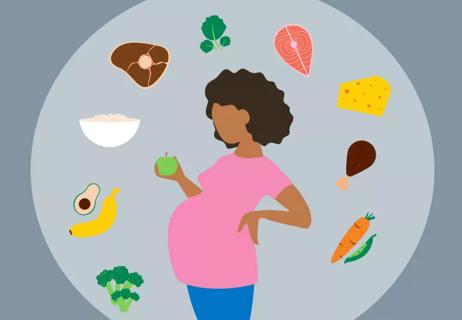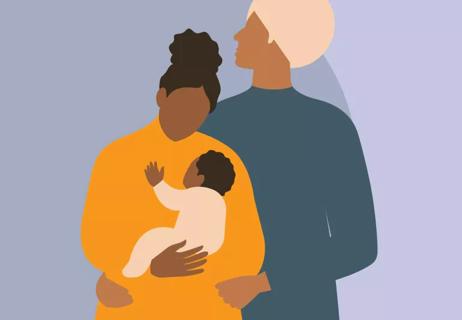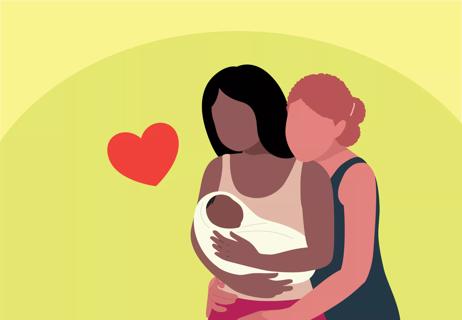Protect yourself against the leading cause of death for moms-to-be

Pregnancy puts an extra strain on the cardiovascular system, just as it does other parts of the body. The amount of blood in the body, for example, rises as much as 50 percent by the third trimester of pregnancy. The heart, then, must work harder to pump more blood. It’s also normal for heart rate to increase during pregnancy.
Advertisement
Cleveland Clinic is a non-profit academic medical center. Advertising on our site helps support our mission. We do not endorse non-Cleveland Clinic products or services. Policy
While most women can tolerate pregnancy without any difficulties, the added demands placed on the heart can be overwhelming for some, particularly those with existing cardiac problems or those at greater risk for developing cardiovascular disease.
A concerning trend is that heart disease has become the No. 1 cause of death during pregnancy in the U.S. today. One example of this is heart attacks before, during and after delivery. Although they’re still relatively rare, they are on the rise, with a recent study reporting a 25 percent increase between 2002 and 2013.
Jeff Chapa, MD, a maternal-fetal medicine (high-risk pregnancy) specialist who is part of a special program at Cleveland Clinic for women with heart disease who are pregnant or considering pregnancy, says the increase in heart-related complications is likely due to a few major factors:
There’s better care for women with heart disease today. That means better survival rates and quality of life. “For example, for women who are born with heart defects, we’re able to fix those surgically and manage them medically pretty well, so those women are reaching child-bearing age, enjoying a better quality of life and getting pregnant,” Dr. Chapa explains.
Advertisement
Women are getting pregnant later. The average age of first-time mothers in the U.S. has risen over the last several decades, according to CDC data. With age comes a higher risk of heart disease and heart attack.
The obesity epidemic. In the U.S., the obesity rate for adults has risen more than 9 percentage points since 2000. Obesity and related conditions like diabetes and hypertension are risk factors for heart disease.
Being attentive to heart health during pregnancy is key, as early detection of problems can help doctors manage them and prevent complications down the road. But, cardiovascular disease can be particularly tough to diagnose during pregnancy, because many common symptoms of heart disease and heart attack are things that women experience during pregnancy anyway.
For example, shortness of breath, palpitations, heartburn and swelling are all common complaints during a normal pregnancy. But Dr. Chapa notes that if these symptoms continue to worsen and begin to affect everyday activities, it is best for women to notify their doctor.
The best thing women can do to minimize their risk, he says, is to optimize their health before getting pregnant. For overweight women, that might mean losing weight. For women with pre-existing heart disease or hypertension, it means getting their underlying condition under good control prior to pregnancy.
“The other thing that can help, especially for patients with significant heart disease, is a preconception evaluation to go over the risks related to pregnancy and what can be done to keep both mother and baby safe,” he says. Sometimes this involves seeing both a cardiologist and a maternal-fetal medicine specialist.
Advertisement
Learn more about our editorial process.
Advertisement

Talk with them about their new sibling early and often

Dental care is not only safe during pregnancy, but it’s also highly recommended

A healthy pregnancy diet includes good amounts of folic acid, DHA, calcium and more

Always talk with your doctor for advice, too

Healthcare providers recommend waiting until week 13 to dye your hair, just to be safe

There’s only one proven way to stack the deck in favor of a boy or a girl

Having a baby after a loss can bring unexpected emotions

Your second-trimester is usually the best time to travel

Type 2 diabetes isn’t inevitable with these dietary changes

Applying a hot or cold compress can help with pain